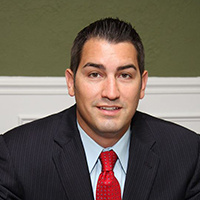Pocono Pines Bankruptcy & Debt Lawyer, Pennsylvania
Sponsored Law Firm
-
 x
x

Click For More Info:
-
Newman Williams, P.C.
712 Monroe St P.O. Box 511 Stroudsburg, PA 18360» view mapBankruptcy & Debt A Legacy Of Solving Clients' Problems
We are proud to uphold a decades-long tradition of serving clients with courtesy, honesty and integrity. We have been here for you, and we will continue assistance into the future.
570-421-9090
Vincent Rubino
✓ VERIFIEDVincent Rubino is a shareholder in the firm of Newman Williams, P.C., in Stroudsburg, Monroe County, Pennsylvania, and has been practicing law at the ... (more)
Brett Michael Freeman
✓ VERIFIEDAttorney Brett Freeman has devoted his career to helping those who are having financial difficulties, and to making sure that those individuals are tr... (more)
Jason Michael Rapa
✓ VERIFIEDJason M. Rapa, Esquire, is a lawyer licensed and admitted to practice law in the State of Pennsylvania and before all three Pennsylvania Federal Court... (more)
FREE CONSULTATION
CONTACT Vincent Rubino Stroudsburg, PA
Vincent Rubino Stroudsburg, PA Practice AreasExpertise
Practice AreasExpertise




